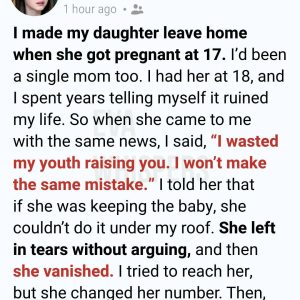But few people even knew the other woman existed.
Her name was Adriana Kovač.
Not a singer. Not an actress. Not a celebrity of any kind. The world wouldn’t recognize her if she walked past them on Pennsylvania Avenue, even though they had seen her countless times — just not in the way they expected.
Some said Melania trusted only her family. Some believed she preferred solitude. The tabloids had filled pages guessing who her closest friend might be: fellow models from her past, wealthy socialites, women from Palm Beach charity circles. But none of them were right.
Because Melania’s confidante wasn’t someone who posed with her at galas or appeared in lifestyle magazines. Adriana walked beside her quietly, always just outside the frame, the woman holding a folder, carrying a schedule, whispering something into her ear only Melania could hear.
The public had no idea.
They weren’t meant to.
Adriana was born in Ljubljana, the same city where Melania grew up. They weren’t childhood friends—life hadn’t braided their paths together that early. The bond was forged years later, long after both had crossed oceans.
When Melania was still adjusting to the strange machinery of American fame — the photoshoots, the interviews, the expectations that seemed to shift without warning — she met Adriana at a charity event in New York. Adriana was working behind the scenes, organizing documents in immaculate order, making sure every minute ran smoothly.
She was calm. Efficient. Invisible in the way only truly competent people learn to be.
Most importantly, she treated Melania the same way she treated everyone else: without awe.
Melania remembered that.
When Donald Trump became a political figure, Melania’s world changed dramatically. Privacy vanished. Schedules expanded. Every word, gesture, and silence was analyzed. She had her own staff, but political staffers come and go, their loyalties tied to campaigns, careers, and news cycles.
She needed someone who cared for the human being, not the role.
She thought of Adriana.
She reached out.
Adriana accepted.
Washington had its own rhythm — fast, sharp, and relentless. Adriana adapted quickly. She became Melania’s special assistant, then her adviser, then — unofficially — the only person Melania trusted with the things she didn’t say.
Adriana learned the small signs first:
Melania smoothing down the cuff of her sleeve when she was stressed.
The soft inhale when she was about to disagree with someone but chose diplomacy instead.
The slight tilt of her head that meant she was done with a conversation two minutes before she excused herself from it.
And Melania learned Adriana too.
She knew when Adriana’s silence meant something was wrong. She knew the difference between Adriana’s “I’ll take care of it” that meant she truly would, and the one that meant someone else needed to intervene.
They were, in many ways, mirrors. Both understood the value of restraint. Both had crossed borders, languages, and lives before reaching the White House. Both knew what it felt like to be underestimated for their accents, their manner, their quietness.
But most of all, they understood loyalty.
Real loyalty.
Not the kind that depends on titles or power.
During the first term, Melania leaned on Adriana more than she admitted. The role of First Lady was beautiful and brutal in equal measure. The public praised and criticized her with the same breath. Stories spun out of nothing. Decisions she didn’t make were attributed to her. Moments she wanted to keep private were dissected like exhibits.
On the hardest days, she walked into her office, closed the door, and said nothing.
And Adriana understood. She sat. She waited. She didn’t fill the air with platitudes.
She simply stayed, a steady presence in a building full of noise.
When the four years ended, Adriana returned to private life quietly, just as she had entered. She didn’t chase interviews. She didn’t publish a memoir. She went home to a small apartment in Arlington and planted tomatoes on her balcony.
Melania sent her postcards from Florida.
Short lines. Neat handwriting.
Miss your calm voice.
Your tulip photo reminded me of Slovenia.
Lunch when you visit?
They remained in each other’s lives not because the White House demanded it, but because loss, distance, and silence had a way of tightening rather than loosening their connection.
And then came the second wave of the unexpected: Donald Trump’s return to the presidency.
The media frenzy reignited instantly. Cameramen crowded the gates, commentators revisited old narratives, and Melania found herself under the same spotlight she had endured before — brighter than ever now, sharpened by years of speculation.
Public interest exploded again:
What was she eating?
How was she staying fit?
Why wasn’t she photographed as often as she used to be?
Was she more private? More guarded? More selective about her circle?
Who, the headlines asked again and again, was Melania Trump’s best friend?
Melania ignored it.
But she knew the answer.
When she returned to the East Wing, the first meeting she requested wasn’t with a stylist, a designer, or a public relations strategist, but with Adriana.
Adriana arrived with a small suitcase and a familiar, steady energy.
Melania didn’t greet her with official titles or formalities.
“Welcome home,” she said.
Adriana smiled softly, setting down her bag. “It’s good to be here again.”
From that moment, they were inseparable.
Not in a dramatic, spotlight-stealing way. They simply moved through the whirlwind together — two women who had survived fame, politics, migration, and reinvention, who had learned how to protect their peace in a city built to consume it.
Reporters spotted Adriana at Melania’s side in photos. They zoomed in. They speculated.
“An aide,” some guessed.
“A new adviser,” others said.
Nobody guessed the truth.
Nobody realized this was the person Melania spoke to on long flights when she couldn’t sleep.
The person who sat beside her during meetings and whispered reminders about moments they had laughed at years earlier.
The person who told her when it was time to take a break, breathe, and step out of the glare.
In a world full of cameras, microphones, and shifting alliances, Melania had one constant: Adriana.
Friendships in Washington often form out of convenience, power, or strategy.
Theirs didn’t.
Theirs formed out of recognition.
Two women from the same small country who found themselves in the center of the most scrutinized house in America — and chose to walk through it with dignity, privacy, and unspoken understanding.
And though the world still wonders:
Does Melania Trump have a best friend?
She does.
The world just doesn’t know her well.





